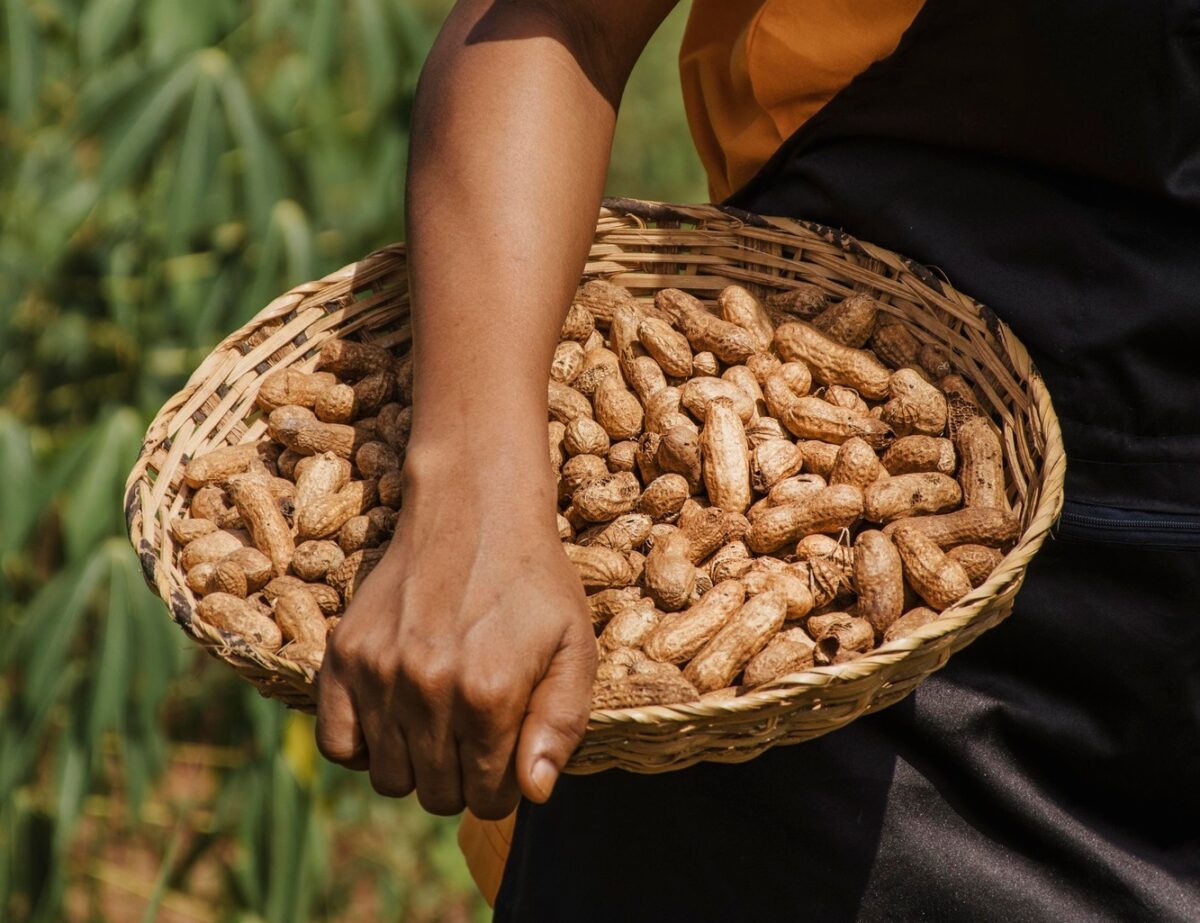The Nutty Side of Sustainability: How Peanuts Contribute to a Better Future

Peanuts are a popular snack food that many people enjoy, but did you know that peanuts are actually legumes and not nuts? That’s right – groundnuts are related to beans and lentils and are native to South America.
Peanuts are high in protein and are considered a good source of energy. They also contain numerous vitamins and minerals, including niacin, vitamin E, and magnesium. In fact, peanuts are so nutritious that they are often used in animal feed to provide a high-quality source of protein and other nutrients.
How Important are Groundnuts?
In Africa, peanuts are primarily grown for their edible seeds, which are either consumed directly or used to make products such as peanut butter or oil. Peanuts are also used in a variety of traditional African dishes, such as groundnut stew, which is popular delicacy in some African nations.
In addition to their culinary uses, peanuts also provide numerous economic and social benefits in Africa. Peanut farming is a major source of income for smallholder farmers in many African countries and helps to support local communities. Peanut production also helps to improve soil fertility and can be grown in rotation with other crops, making it a sustainable and environmentally-friendly option.
Did you know that peanut butter was first created in the late 1800s as a food for people who had difficulty chewing?
Today, peanut butter is enjoyed by people of all ages and is a common ingredient in a variety of recipes. Peanuts are also used in other products, such as peanut oil and candy, and they can even be found in some cosmetics.
The peanut butter industry in Africa is a growing sector that plays a significant role in the economy and agriculture of many African countries. Peanut butter is a popular and nutritious food in Africa, and it is often consumed as a spread on bread or used as an ingredient in a variety of dishes.
In Africa, peanuts are primarily grown for their edible seeds, which are either consumed directly or used to make products such as peanut butter or oil. The production of peanut butter in Africa is a labor-intensive process that often involves small-scale farmers and processors, who may lack access to modern equipment and technology. This can make it challenging for the industry to compete with larger, more mechanized producers in other parts of the world.
Despite these challenges, the peanut butter industry in Africa has often provided significant economic and social benefits to the region. Peanut butter production creates jobs and provides income for smallholder farmers and processors, and it also helps to improve food security and nutrition in African communities.
Peanuts are often grown in rotation with other crops, as they can help improve soil quality by adding nitrogen to the soil. This makes them a valuable crop for farmers and helps to ensure the sustainability of agricultural practices.
Unfortunately, peanuts can be a problem for some people, as they are one of the most common food allergies. Many people experience severe reactions to peanuts and peanut products, which can be life-threatening in some cases. It’s important for individuals with peanut allergies to be aware of this and to take necessary precautions when consuming peanuts or products that may contain peanuts.
The peanut industry in Africa faces a number of challenges, including low productivity, limited access to credit and markets, and the impact of climate change. However, there are also opportunities for growth and development within the sector, such as the increasing demand for peanuts and peanut products globally, as well as the potential for value-added processing and exports.
Other Unique Facts About Groundnuts That You Should Know
- Peanuts are sometimes called “ground nuts” because they grow underground
- Peanuts are a rich source of antioxidants, which are substances that can help protect the body against damage caused by free radicals.
- Peanuts have a long shelf life and can be stored in a cool, dry place for several months without spoiling.
- Peanut farming plays a vital role in the economies of many developing countries, as peanuts are a major source of income for small farmers.
- Peanuts are a popular ingredient in many international cuisines, including Chinese, Thai, and African dishes.
- Peanut shells can be used as mulch in gardens, as they help to suppress weeds and retain moisture in the soil.
- The peanut plant is a legume, which means it has the ability to fix nitrogen from the air into the soil, helping to enrich the soil and improve its fertility.
- Peanuts are a good source of monounsaturated fats, which can help to lower cholesterol levels and reduce the risk of heart disease.
You may also want to read about: Time To “Go Nuts”: 10 Reasons Why You Should Eat Peanuts Quite Often



